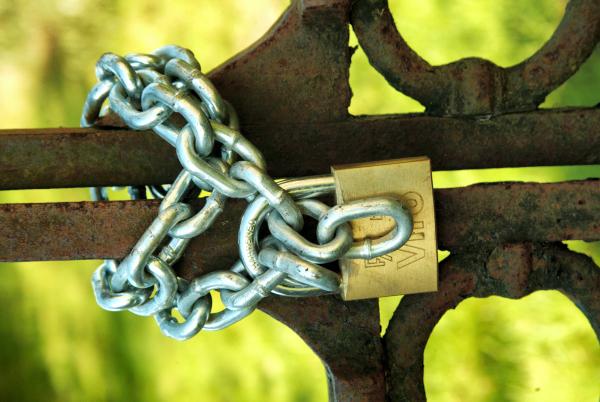Q I have been using a right of way for years, as did my father before me. The land was recently sold and the new owner has recently put up a gate and put a lock on it which has created a nuisance for me and others in accessing my land. What are my rights?
A Firstly, I would suggest that you approach the new owner of the land to discuss the issue, if you have not already done so. You should find out whether the owner acknowledges that you have established a right of way over his lands or whether he is contesting it. If he acknowledges the existence of the right of way, you should query the reason he put up the gate.
To amount to a disturbance with a right of way, there must be a real substantial interference with the use of the right of way, which is determined by the facts of each case. The person who owns the land over which the right of way exists has as good a right to the enjoyment of his land as the person who uses the right of way. It is often claimed that the erection of a gate across a right of way constitutes an interference with the use of that right of way. Whether it does or not depends on the purpose for which the gates were erected, such as to prevent straying animals or indeed the theft of animals.
It has been held in a case that the control of gates on a right of way was exclusively vested in the person who owned the land over which the right of way exists but they must give means of opening them to persons who use the right of way and those persons must close the gates immediately after use.
However, in another case it was held that the person who used the right of way was entitled to put gates on the right of way so long as they did not interfere with the rights of the person over whose land the right of way was exercised.
It may be unreasonable to oblige the user of the right of way to keep a gate shut for the purpose of keeping out livestock when this purpose is otherwise fulfilled by the provision of a cattle grid, for example. Also, there may be no obligation to keep the gates closed if there is no stock on the land. The obligations in respect of the installation of gates and the duty to keep them closed depend on the facts of each case.
Where there has been disturbance of a right of way, the cause of action is a claim in nuisance. The fact of a disturbance is not sufficient; there must be a real substantial interference with the rights of the person who enjoys the use of the right of way in order to ground a claim.
Where relief in the form of an award of damages is of little consolation to one whose right of way has been permanently obstructed, a more appropriate remedy may be to seek an injunction. Injunctive relief, whereby an order directs a person to do some act or to restrain from doing an act, was developed as a means of achieving justice where damages (in the form of monetary compensation) were not a sufficient remedy.
Where a dispute involves no actual real substantial disturbance but arose from conflicting beliefs as to the rights of the parties, an application can be made to the court for a declaratory order.
In terms of who will be liable for court costs in such an action, in general in actions involving disputes as to rights of way, the circuit court makes no order as to costs unless it is necessary to mark the court’s disapproval of the behaviour of one of the parties. Consequently, each party will pay their own legal costs. Seeking an injunction or a declaratory order from the court can be costly and time consuming so you should try to resolve the matter directly with the new landowner if at all possible.
Disclaimer: The information in this article is intended as a general guide only. While every care is taken to ensure accuracy of information contained in this article, Aisling Meehan Agricultural Solicitors does not accept responsibility for errors or omissions howsoever arising. Email ameehan@farmersjournal.ie









SHARING OPTIONS